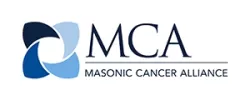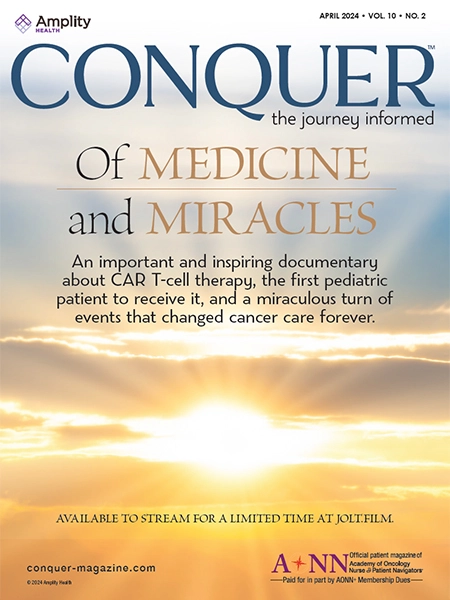Name: Mary Lizabeth
Position: Nurse Navigator
Subject: Metrics
Question:
Hi! My institution is going forward with measurable metrics. We picked out about a dozen that they feel the CHF and MI navigator could also measure. My question: one of the metrics established by AONN+ was “referrals to revenue producing practitioners” (probably not exact words). How is this measured? As an RN, BSN I can’t really refer. Thank you for your assistance.
Answer:
You may be the person on the oncology team who recommends to the treating physicians that the patient be seen by cancer prehabilitation, or genetics evaluation, or perhaps breast reconstruction plastic surgeons, or even fertility preservation specialists. Other referrals may be to psychotherapists if the patient’s distress score is high. If referrals such as these are automatic in the form of a protocol that “always happens” without someone having to remind the team about it, then those referrals would not apply. However, if you are the prompter and helping to ensure that the patient gets what he/she needs along their cancer continuum, then it is appropriate to record these as referrals you helped make happen. The financial data would come from the billing database for those providers/that department.
Name: Vivi
Position: Nurse Navigator
Subject: Research Nursing and Navigation
Question:
Hello from Miami, Lillie!
I recently saw “Research Nurse Perspective on Navigators” and as a former navigator, and now a research nurse, I wanted your feedback on how to better advocate for our patients with cancer. I’d like for us to be able to capture patients for clinical trials as soon as the oncology navigators begin speaking with the patients. What can you recommend I do, as the research nurse role is fairly new in our institution? I’d like for our oncology care team to function as a well-oiled machine with our patients as our #1 priority. Thank you for your time.
Answer:
That’s great!!! I recommend that the nurse navigator who is seeing the patient initially (and ideally, very soon after learning the diagnosis) knows how to screen patients for clinical trials – in essence, whether the patient meets the criteria for a specific study. Then the ONN needs to determine if the time is right to approach the patient. Someone crying and having difficulty concentrating because they are so scared would likely decline to participate in any studies. So, timing is key. If it seems to be a good time, based on her emotional well-being, then the ONN should page/ping you and have you see the patient ASAP while they are in clinic. If the patient meets the criteria but is too distressed, the ONN should provide the patient with a letter from you (with your photo on it) that states the patient may be a candidate for an innovative study, and that you will meet her at her next visit – this could be at a test being done the next day or a doctor’s appointment 3 days later. If the patient is calm enough to meet you but not mentally ready to hear details about a clinical trial, then introduce yourself face-to-face and tell her you will be seeing her when she returns for additional tests/appointments. Consider having literature that explains in layman’s terms what a clinical trial is. We need to undo the myth that we are merely experimenting on people. It also can be a selling point that the patient will be followed more closely because they are in a clinical trial, seeing you as an advocate for them. I know you will be a great asset to the team!!
Name: Elaine
Position: Nurse Navigator
Subject: Survivorship Care Plan/Treatment Summary
Question:
My institution’s cancer committee has suggested we study what the benefit, if any, has been to our patients who have received Survivorship Care Plan (SCP)/Treatment Summary over the past few years. Have you, or do you know of any institution that has, conducted such a study?
Answer:
There is some published literature on this, but the majority of it is showing that there doesn’t seem to be much benefit. Merely receiving pieces of paper doesn’t tell us anything about clinical outcomes. We need to know if the patient adhered to the screening schedule. Did they adopt healthier lifestyle behaviors to reduce their risk of getting cancer again? When these documents were created, it was with the expectation that cancer survivors would need to be transitioned back to their Primary Care Physicians (PCPs) and other community providers. That hasn’t happened much though. Oncology specialists, despite there being a shortage of these doctors, have continued to see their cancer survivors at least annually, which means the survivor doesn’t yet have to worry about self-management, remembering when to schedule for screening tests, etc. Ironic really. And some institutions opted to develop survivorship clinics run by APNs who follow survivors long-term. A key member of the team who is left out is the PCP. We need that provider to know what to watch for too when seeing a cancer survivor. We are just now learning more about late effects of some newer treatments. PCPs need to be aware of them or they may miss a diagnosis of a serious late effect such as cardiac toxicity. You can go to www.pubmed.com and use its search feature to see what has been published.













